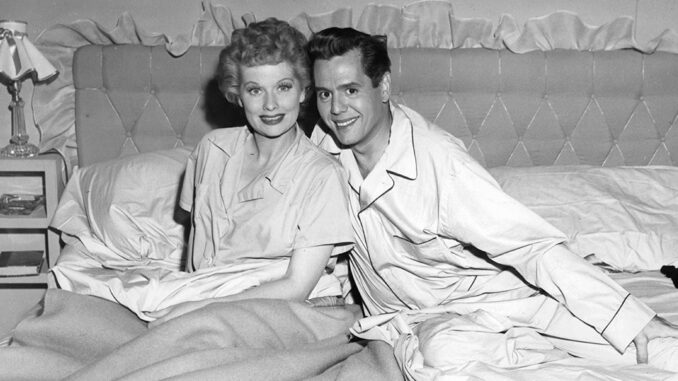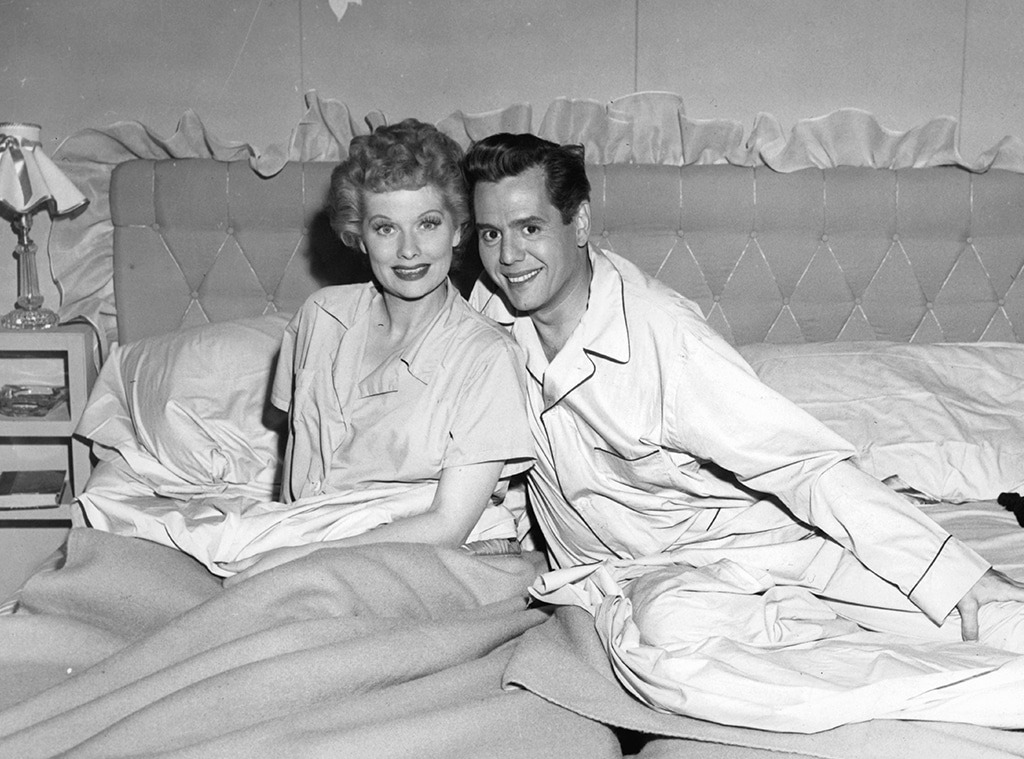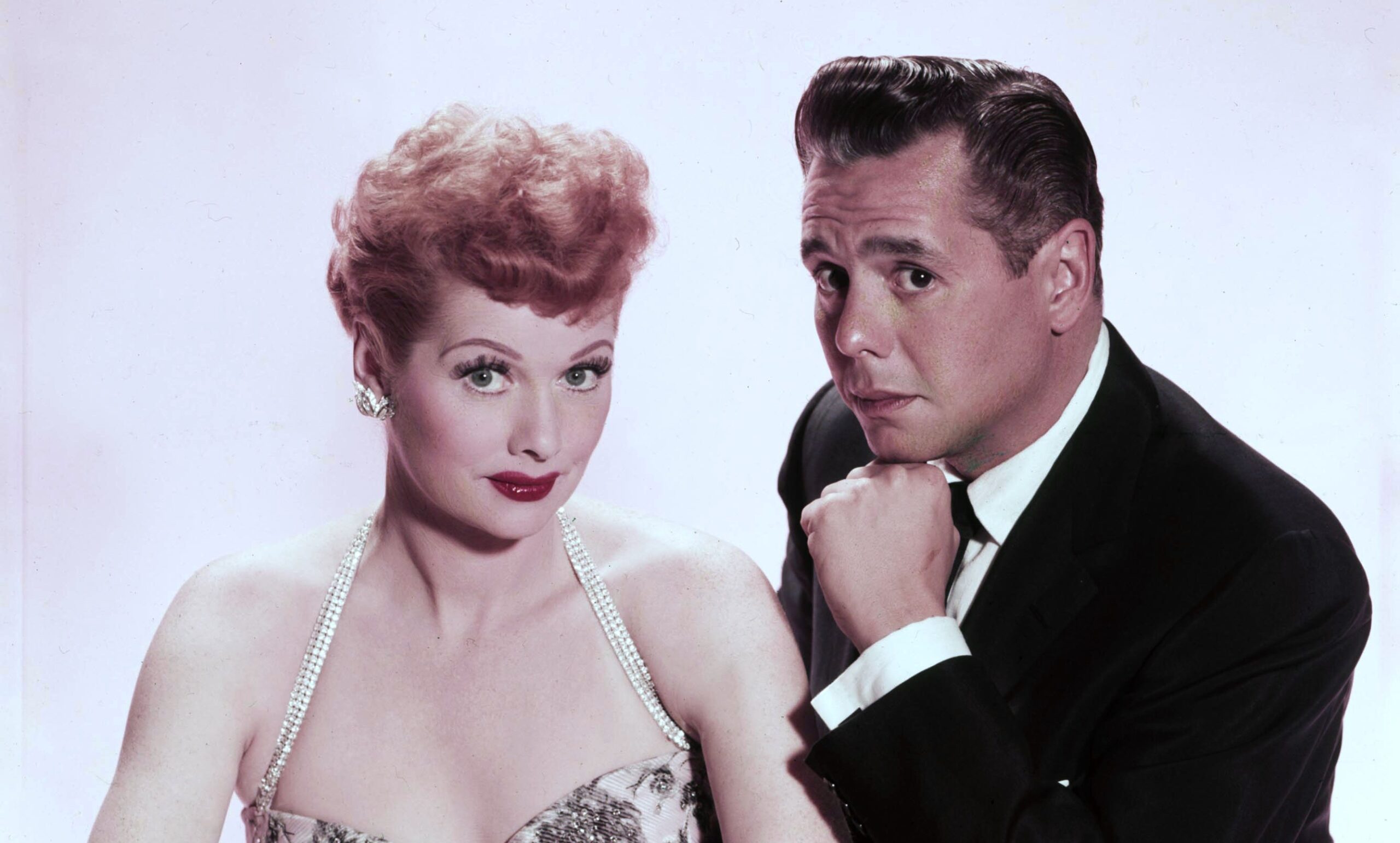
Lucille Ball and Desi Arnaz made for one of the all-time great onscreen couples, but their marriage was already in trouble by the time I Love Lucy premiered on Oct. 15, 1951.
Not in the form of memorabilia all over the house or anything (my ephemera is limited to a DVD box set and one collector’s plate commemorating the iconic “It’s so tasty too!” scene from “Lucy Does a Television Commercial,” a.k.a. the Vitameatavegamin episode), but in the way that hardly a day goes by in which a line from the show doesn’t pop into my head as an appropriate response to a real-life scenario.
I mostly confine the constant references to chats with my mom, the one who introduced me to I Love Lucy at some point in my early childhood, but more than a few friends have heard me say “that reminds me of this Lucy episode” over the years. I can go months without watching, but its relevance to my life never wanes.

Not that super-fandom is niche in any way when it comes to the groundbreaking CBS sitcom that premiered on Oct. 15, 1951, ran for six seasons and continues to live forever in repeats. It’s one of the best-ever situation comedies, having originated so many of the situations that other comedies went on to milk laughs from in its wake. And my love is probably pretty muted compared to those who do collect Lucy paraphernalia and go to conventions or join Facebook groups (such as the one devoted to releasing more episodes of the black and white series in color, as CBS has taken to doing two at a time around the holidays).
But I will celebrate the show’s genius at every opportunity. And that, for me, only begins with the incomparable titular redhead.
The premise—New York housewife makes endless hilarious mischief for her Cuban bandleader husband—was brought to life by real-life couple Lucille Ball (winner of two acting Emmys) and Desi Arnaz (never even nominated, a crime) in 180 endlessly clever and topical yet timeless episodes courtesy of head writers Jess Oppenheimer, Madelyn Pugh Davis and Bob Carroll Jr., who while sticking to a certain formula still had room for crafty references to cultural touchstones such as First Lady Mamie Eisenhower, the Kinsey Report and the banned-in-Boston romance novel Forever Amber.
Ball had previously worked with the same writing trio on the radio comedy My Favorite Husband—which CBS wanted to make into a television show, and Ball refused to do it without Arnaz as her leading man. The risk-averse network feared viewers weren’t ready for a mixed-ethnicity couple in prime time, so the couple took their chemistry on tour to prove they’d be a hit, Arnaz singing and Ball joining him for comedic sketches, many of which made it into the series.

Within six months of the show’s premiere, more than 11 million households were tuning in each week, back when only about 15 million owned TV sets.
I Love Lucy has never been off the dial since. But though her talent and overall fearlessness made the whole thing possible, the show didn’t get its staying power from Ball alone.
Rather, it’s the sum of so many parts: Lucy Ricardo’s antics, yes, but also the invariably pitch-perfect performances by her supporting cast, the delightfully perfect timing of every aside, one-liner and look thrown back at her from Arnaz as Ricky and William Frawley and Vivian Vance as the Ricardos’ landlords and best friends, Fred and Ethel Mertz. (Vance won an Emmy for supporting actress in 1954, Frawley was nominated twice and the writers were also nominated twice, inexplicably losing both times to scribes from shows you’ve never heard of.)
This is the part where I could just start listing moments, but one I always come back to is Ricky’s reaction to Lucy accidentally lighting her fake nose on fire in front of William Holden. That’s the gag, one of the whole series’ most memorable scenes, but Ricky’s wide-eyed disbelief at what he’s witnessing is also one of the all-time great facial expressions. (Despite being snubbed for acting, as the show’s executive producer Arnaz did share two Best Comedy Series Emmy wins with Oppenheimer.)